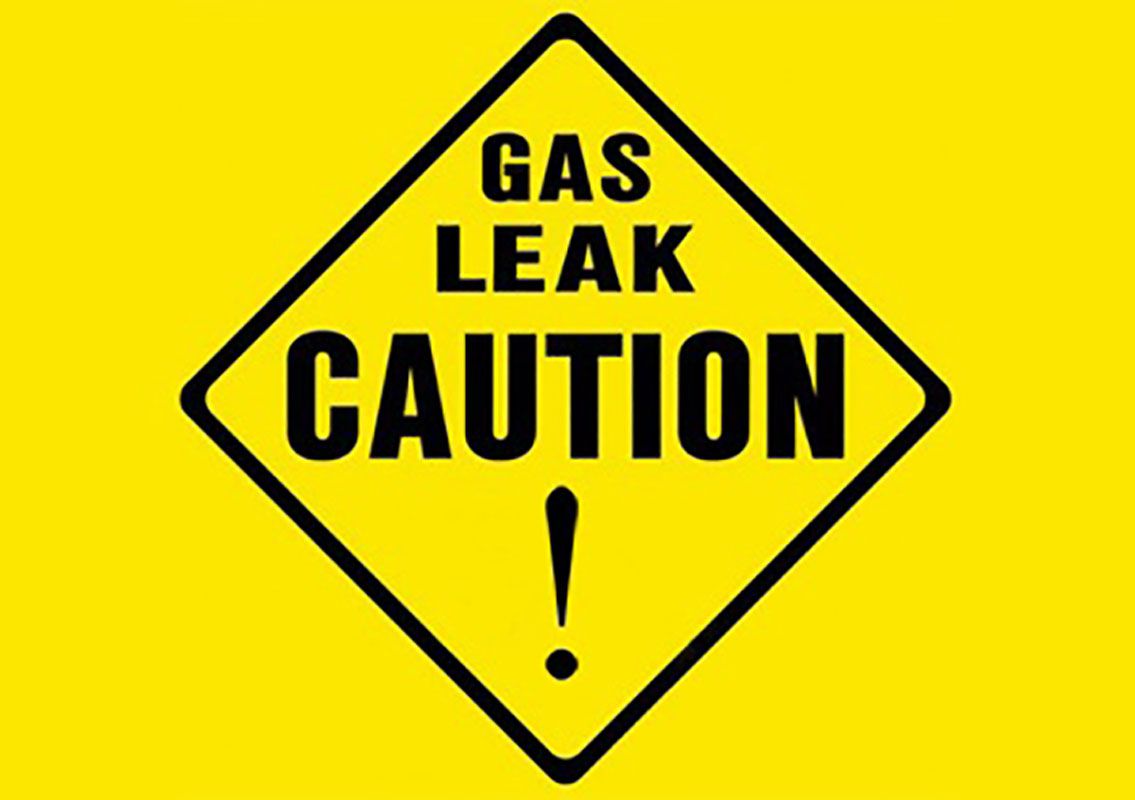What to do if you smell gas — do you know the next steps?
A gas leak can happen at any time. But many of us aren’t prepared for what we should do next or even how to tell if a gas leak is occurring in the first place. By the end of this article, we hope you’ll feel more confident knowing how to identify gas leaks and what to do if you smell gas.
A natural gas leak is one of the most dangerous situations Arizona homeowners can face. Even the tiniest leak puts your home, your business, and your family at risk. Natural gas leaks can lead to fires and explosions and, if the gas is not burned completely, to carbon monoxide poisoning.
And the risk is real. Arizona has an average of six natural gas leaks a day (source: azcentral.com).
Natural gas pipelines can be buried anywhere. Even if you don’t have natural gas appliances in your home, natural gas pipelines may be on your property. So, your family must know what natural gas smells like and what to do if they smell it – even when outside.
How to Tell If You Have a Natural Gas Leak
Four signs could indicate you might have a small natural gas leak, and it’s time to repair your gas piping.
They are:
1. An unmistakable sulfur-like smell, often described as a “rotten egg” smell
Natural gas is naturally odorless and colorless. To make it easily identifiable, utility companies add a chemical called mercaptan to give it a distinct and pungent smell. The smell is often described as similar to rotten eggs or sulfur.
It could indicate a gas leak if you notice this smell in your home or building—especially if it’s concentrated in one area or becomes more potent when you’re near your gas appliances.
2. Dead plants in the area of a gas line
Natural gas can affect plant life. If you have a gas line running through your yard and notice plants, grass, or trees near the line are dying or becoming discolored, this could indicate a gas leak underground. The gas restricts the ability of plants to receive oxygen, causing them to wilt and eventually die.
3. Hissing sound
If there’s a significant leak in your gas line, you might hear a hissing sound—gas escaping from the pipe! This often indicates a substantial leak. The hissing might be continuous or intermittent, and its volume can vary depending on the size and pressure of the leak.
Always take a hissing sound seriously, as it could mean a large amount of gas is being released, which increases the risk of a fire or explosion.
4. White cloud or dust cloud near a gas line
If a gas line ruptures, it might cause a dust cloud or a white cloud to appear. Similarly, in some conditions, the gas itself can form a cloud that is visible to the naked eye. If you notice a sudden, unexplained dust or a white cloud near a gas line, it could indicate a serious gas leak.
In this case, leave the area immediately and call your gas utility company from a safe distance.
What to Do if You Smell Gas: Follow These 6 Steps
When any of these signs are present, follow these six steps immediately:
-
- First, you should immediately leave your home or building and call 911. As you exit, leave the door and any windows that may already be open behind you.
- If you can, quickly shut off the gas valves in your home. However, do not spend any extra time doing this.
- Do not smoke, light a match, use a lighter, or switch lights on or off. This can ignite any gas that may be present in the air. Avoid using your cell phone until you’ve left the area.
- If it’s an apartment or office building, let anyone you see entering know there is a suspected natural gas leak.
- Once safely outside, contact the gas company that supplies the home or building. Then, advise them of the leak so they can turn off the gas.
- The last step is contacting a professional to perform the repairs. RP Gas Piping is an expert in Arizona’s gas line repair business. We will inspect your gas lines, find where the leak comes from, and replace the leaking pipes. This will ensure your home is safe before you enter it again.
Beyond what to do if you smell gas, we cover other top questions on the subject in this post.
Take Natural Gas Leaks Seriously
Natural gas leaks are very serious. You can protect your family by installing carbon monoxide detectors inside your home. You can also purchase natural gas detectors if you are concerned about future natural gas leaks – some models combine both forms of detection.
RP Gas Piping is one of Arizona’s most qualified and efficient natural gas contractors with a natural gas emergency response team. We are open 24 hours a day, seven days a week, serving our customers.
Our emergency services include:
- Residential and commercial leak repair
- Residential and commercial repair
- Residential and commercial bypass leak piping
- Pilot relights
- Expedited permitting
- Line locating
- Gas leak detection
Did you learn a lot about what to do if you smell gas in this article?
Here are three more to read next:
- 3 Reasons to Schedule an Annual Master Gas Meter Inspection
- 5 Safety Tips for Natural Gas Fireplaces
- Natural Gas Explosions Are Too Common: Here’s How to Prevent Them
This article was updated in 2023.


